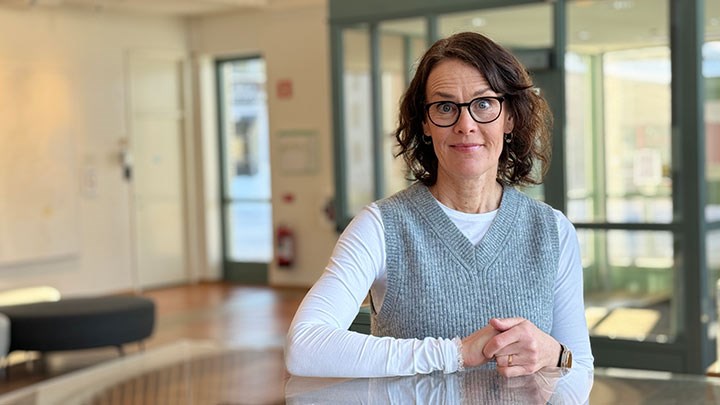Susanna Heldt Cassel

Susanna Heldt Cassel is professor of human geography. Her research focuses on the socially sustainable development of places and regions.
“To understand the conditions for development in a place, we need to examine how culture, identity, and material conditions shape the everyday lives of people and their opportunities to participate in change processes,” says Susanna Heldt Cassel.
2004 Obtained her PhD in human geography at Uppsala University with her thesis Att tillaga en region: Den regionala maten i representationer och praktik
2012 Docent in human geography, Uppsala University
2017 Professor of human geography, Dalarna University
2024 Professor of human geography, Örebro University
Susanna Heldt Cassel studies the impact that tourism has on the possibilities for smaller communities to develop in a socially sustainable way. She also examines how power structures and working conditions within the service industry affect men's and women's working lives. Additionally, she studies how media, marketing, and political policies shape our perception of rural areas.
She started her doctoral studies in human geography at Uppsala University in 1997. After the public defence of her doctoral thesis in 2004, she worked her first year at the Swedish Higher Education Authority (UKÄ) on a project about student influence in higher education.
Behind research on tourism
In 2006, Susanna Heldt Cassel was appointed senior lecturer in human geography at Dalarna University. After many years in her second hometown of Uppsala, she, her husband, and their three children moved to Ludvika a year earlier.
At Dalarna University, she has played a pivotal role in creating a research environment focused on tourism and regional development. She has also encouraged broader collaboration on doctoral studies with other universities, including Örebro University. In 2016 and over the following six years, Susanna Heldt Cassel was the head of research at CeTLeR, the Centre for Tourism and Leisure Research, where research is focused on tourism in close collaboration with regional businesses and stakeholders within society.
Methods development is central
The common thread in Susanna Heldt Cassel’s research has always been methods development, "As a researcher, I have always been interested in qualitative research methods. In my thesis, I studied discourse analysis as a theory and method with popular culture as empirical material."
Susanna Heldt Cassel has analysed digital material and social media in several projects to examine how portrayals of places and cultural phenomena are created and communicated. She has also used in-depth interviews and focus groups at workplaces and companies as methods, often in combination with various types of text analyses.
In one project, she studies cleaning staff’s conditions and working lives using the participant observation method, where the researcher works alongside the studied individuals.
“Studying societal phenomena involving vulnerable individuals and groups is challenging. The participant observation method is a way of reducing the distance between the researcher, the activity and the everyday lives of the individuals being studied,” she explains, pointing out that the qualitative methods are very much about using one’s own body and physical person to collect and analyse research material.
Based on a gender perspective
Susanna Heldt Cassel has led several externally funded research projects, many based on a gender perspective. The first project contrasted men’s and women’s commuting patterns and how differences could be accounted for. Another project focused on women entrepreneurs in rural Sweden's tourism industry.
“Women entrepreneurship within agriculture has influenced the view on which professions and tasks are considered suitable for men versus women – and status regarding those various activities. For example, tourism has become an important economic component on farms today.”
Research on trafficking
Gender and equality have also been in focus in projects related to work in hotels, including analyses of how employees can counteract prostitution and trafficking. Research has also dealt with the impact of power dimensions related to, for example, gender, class, and country of birth on various groups’ working conditions.
Susanna Heldt Cassel has extensive teaching experience and is particularly interested in developing students’ interests in scientific research methods and academic writing. Likewise, she wished to ensure that students, through field studies and placements, can discover the connection between theory and practice and how these skills can be helpful in society.
“As a human geographer, I’m looking forward to coming to the academic environment in Örebro, which has a strong urban planning programme and students interested in forming tomorrow’s sustainable society.”
